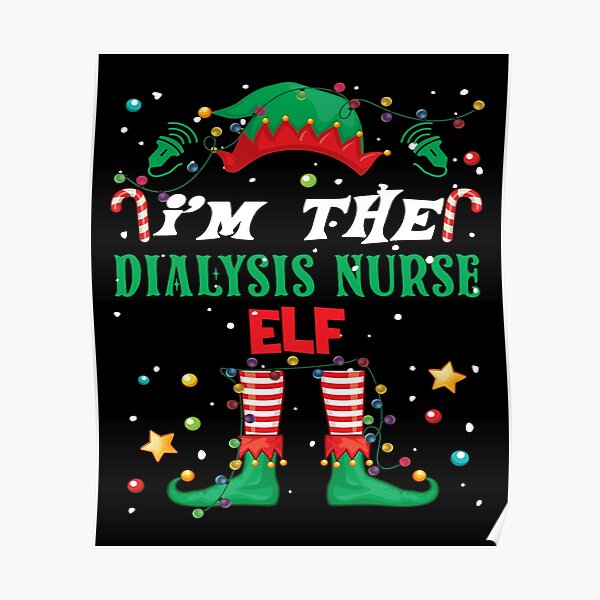
When i joined the splendid NHS dialysis unit, the line manager advised me to keep away from requesting for annual leave during the festive season. It is an unwritten rule that renal nurses are especially needed during these times. Patients get to spend time with their families and partake of some meals that they normally would not. It easily causes complications on haemodialysis. For this reason. We need all staffs on duty or on standby should they be needed.
The renal dietitian came to the dialysis unit last week and brought with her a stack of printed out recipes for our patients. I honestly felt that was considerate. Turns out that is a tradition. It is always done. I was late to the party. The food options for kidney patients in the United Kingdom is very different from what we have in Kenya. There is a wide range of food products not available in Kenya and this spoke to me as I skimmed through the list of different recipes.
A standard British meal contains a starter, usually some soup or a light snack. A main meal and a pudding. The first time I heard the word pudding I expected them to bring me a bowl of mixed fruits. That is what we call pudding in Kenya. It turns out pudding is a dessert. What you eat after the main meal usually a sweet and savory dish. Cakes, ice-creams and their ilk belong to the group of desserts/pudding.
In Kenya, a meal is usually a main meal. My patients back home came from poor socio-economic backgrounds and many would be even lucky to afford three meals a day. this made me agonize deep within my soul as I looked at the meal options. I have tried to go through the options available in Kenya and what we could do as a people to help kidney patients enjoy their meals during the Christmas period.
Fluid Needs
Most kidney patients produce little to no urine since the kidneys have failed. The problem with too much fluid intake is that it will seep into the lungs making you unable to breathe properly. For my Kenyan audience, this may be more pronounced because our patients dialyse only twice and not thrice as recommended by the National Kidney foundation (www.kidney.org).
What to do?
It is advised that you stick to your fluid count. In Kenya we ask you to limit yourself to a maximum of a litre between each dialysis session. In some patients, we reduce this to half a litre. Do take note of the hidden fluid content in soups and juices. The other issue is salt content. Water follows salt. Make your meals with other alternatives of salt because the more salt you take in your food, the more water your body will hold. This will make you look like you have been taking too much water while what you actually did was overdo the salt.
Pertinent Potassium
Kidney patients are very aware of the dangers of too low or too high potassium content in the body. To the general populace, potassium is a mineral or an electrolyte that is needed for proper pumping of the heart and muscles and other functions in the body. It needs to remain in a tight balance because too low or too high causes a heart attack.
Potassium stays inside our cells and it is released as needed and then excreted through urine. However, the kidneys of a renal patient are not able to maintain the balance of potassium. Patients are hence at an increased risk of too low or too high potassium. Too high potassium is what I am worried about over the Christmas period. Why because potassium is present in varying quantities in all the foods we eat in Kenya.
What to do?
Stay away from mutura. See, mutura is made from blood and offal of the slaughtered animal. If you have interacted with Scottish dishes, it is a variant of Haggis. Blood has a very high content of potassium. This is why we advise kidney patients not to undergo a blood transfusion unless they are under the care of the renal team.
Mutura is as deliciously tempting as it is lethal to a kidney patient. When you prepare our traditional vegetables, leach them first and pour out the water before frying. Leaching removes a high content of potassium from the green leafy vegetables and other veggies.
What is Leaching and How do I do it?
This is the crux of the Christmas holiday in Kenya. Why because we have a wide variety of vegetables and not much luxury of foods naturally low in potassium. So, we must work with what we have.
Take your potatoes and peel them. I say potatoes because they will feature in almost all our Christmas meals.
Cut them in large chunks. Rinse them in cold water. Cold because warm water will make the potatoes or such vegetable to be dark.
Add them to a sufuria or basin with cold water. Make sure that the sufuria will hold ten times the water than the potatoes. Say you have three potatoes. Your sufuria needs to hold thirty cups of water.
Let them soak for three to four hours. Keep changing the water every hour.
Rinse them again with cold water and cook and enjoy them.
The problem with boiling vegetables first as you may have been advised before is that you will get rid of the other nutrients too. That is why leaching is advised to not only reduce the potassium content but phosphate content as well.
Even then, the portion of the food does matter. Leaching them does not mean we have removed the entire potassium content. We have just reduced it. Let us go very easy on the portion size.
On the other hand, cauliflower, broccoli, cabbage, eggplants, white bread and white rice are some of the foods that are locally available in Kenya and have low potassium content. Whole grains have high potassium content so your ugali should be from sifted maize meal. Your chapati from refined wheat flour as opposed to chapati za brown.
Problematic Phosphates
I did an extensive piece on the role of phosphates in kidney disease https://www.catemimi.com/2020/08/19/kidney-disease-and-the-bones/ All dairy products contain a high level of phosphates. Nuts and meats are also good sources of phosphates. Unfortunately, high phosphates will cause bone and skin problems as explained in that piece I previously wrote.
What to do?
Boil meat before cooking it. Do not drink the water that you boiled the meat in. Pour it away. Cook your meat and enjoy it. When they bring the soup, kindly decline. Soup will be rich in both calcium and phosphates. Further with every meal, take your phosphate-binding medications. These medications ensure that the phosphate you may have eaten in the food does not get absorbed by your body. That is the only way to keep your skin and bones in check in kidney disease.
My earnest prayer is that you will be more mindful of the food you eat and drink during this holiday season. This blog post is but a guidance. For the rest of us, let us be intentional in helping kidney patients prepare and enjoy their meals without risking their lives.

Very informative.Continue dear education is power.
Quite informative.. Kudos Catherine